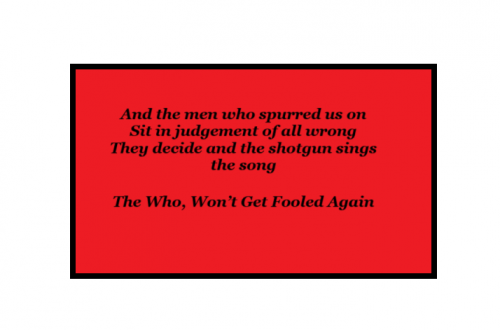This is a cross-post from Martin in the Margins
It’s taken me nine months to get around to posting about the European Union referendum, but it’s not as if the issue has gone away in the meantime. Last Saturday saw a big pro-EU march in London, and I’m writing this on ‘Brexit Day’, just a few hours after Theresa May ‘triggered’ Article 50, officially declaring the United Kingdom’s intention to leave the EU.
Sitting on the fence
I sat firmly on the fence for most of the referendum campaign, arriving at a decision about which way to vote quite late in the day. I was torn between two conflicting principles. I’m an unabashed Europhile: that’s to say, I love Europe (which is not the same as loving the EU). We travel in Europe a good deal, I (try to) speak a number of European languages, and I’d estimate that a least a third of my reading is in European literature. My sense of identity is closely bound up with European history, religion, philosophy and art. As an academic and educator, I’ve seen the benefits of European cooperation and cultural exchange, and have spoken with Eastern European colleagues for whom joining the EU was an important symbolic moment, marking a move away from the influence of Soviet communism and into the orbit of free nations.
On the other hand, I’m a believer in genuine subsidiarity, convinced that political decisions should be made as close as possible to those they affect, and I’m suspicious of unaccountable transnational entities (whether governmental or corporate) that suck power away from local representative bodies. I’m also a firm believer in the nation state, historically the best preserver of democracy and local rights, and hostile to the integrationist and expansionist plans of many leading figures in the EU. Like Roger Scruton, I suspect that many Britons are instinctively wary of the EU project, largely because we’ve never been invaded or subjected to totalitarian tyranny, so we don’t think we need a United States of Europe to protect our freedoms – and also because we’re jealous of our longstanding tradition of ‘bottom-up’ common law and find it difficult to reconcile with the ‘top-down’ Napoleonic legal traditions of continental Europe. I’m not an economist, but it’s pretty obvious that the Euro has been something of a disaster, a symbol of Eurocratic overreach, and not auguring well for plans to integrate the economic and social policies of member states still further. At the end of the day, I’m also something of a ‘small-is-beautiful’ kind of guy, keen to preserve local differences in political and cultural traditions, and even in apparently trivial things such as weights and measures, against an encroaching supranational body that would eradicate them in the interest of rational uniformity.
At the same time, I believe in international cooperation, and I’d like it if Britain were part of a loose European association that cooperated on economic and cultural matters, but respected the independence, sovereignty and diverse traditions of its constituent countries. The option I dearly wanted – a reformed European Union that rejected the integrationist agenda of recent years and returned to this original vision – wasn’t on the ballot paper. Instead, it was clear that those driving the European project wanted still more integration, more interference in national legislative processes – a European army was talked about, perhaps eventually a United States of Europe – and, based on past evidence, its instigators wouldn’t take ‘no’ for an answer, forcing member states to vote in repeated referendums until they got the answer they wanted.
Do read the rest of Martin’s post here


